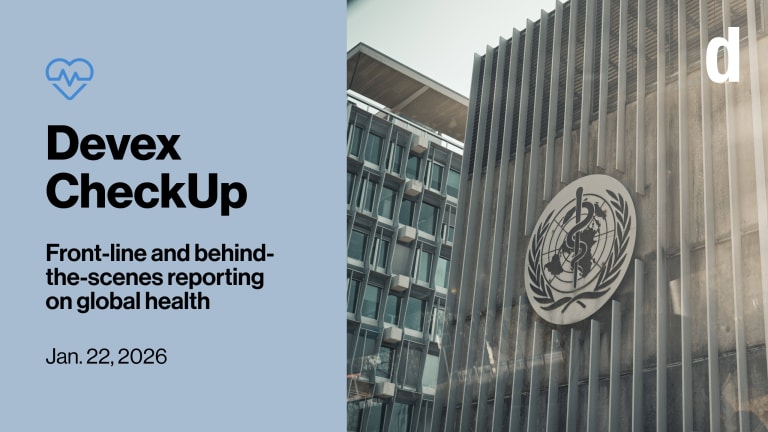
GOMA, Congo — It’s been one year since BBOXX, a private company focused on solar power initiatives in Africa, began attempting to electrify the Democratic Republic of the Congo’s more than 80 million people, over 90 percent of whom don’t have access to power.
Home to one of the world’s most complex and longest standing humanitarian crises, with more than 13 million people in dire need of assistance and nearly 4.5 million internally displaced, DRC also poses a unique opportunity for companies willing to risk working there.
“This is potentially the best market in the world for what we’re doing … There’s nowhere else where you have cities with big economic centers with real amounts of money that don’t have power,” said Max Gopfert, managing director of BBOXX.
Founded in 2010 by three friends who met at university in London, BBOXX is based in the United Kingdom and currently runs projects in Togo, Rwanda, Kenya, and now DRC. The company, which Gopfert considers to be in a growth stage, is funded by several large investors that supported its expansion into Congo, including the Shell Foundation.
See more on renewable energy:
► China, developing countries, lead in renewable and solar energy investment
Neighboring Rwanda, Kenya, and Uganda are all home to big cities where residents have access to electricity. Congo has similar living conditions, but a failing state-owned power company, Gopfert said. For BBOXX, this equates to an ideal operating environment.
Although the country has an electrical grid, the rapidly growing population isn’t getting connected fast enough, Gopfert explained. The state’s inconsistent power supply means those who pay at least $15 a month don’t always have access. The service doesn’t allow people to easily pay via mobile, and instead sends a representative to households each month to collect payment.
Some people do still sign up to the state-owned company in addition to BBOXX so they can use commodities such as an iron or freezer — appliances they can’t currently use with power offered by BBOXX.
“Once you get a handle on things and understand what’s important and what not to be too worried about, it’s possible to operate a successful business in the country.”
— Max Gopfert, managing director at BBOXXStarted less than a year ago, BBOXX is the only private company in the country providing people with solar power. To date, it has electrified 5,000 Congolese households in the capital of Kinshasa and 2,000 in Goma. Its aim is to electrify between 350,000-400,000 households by the end of 2020 — approximately 2.5 million people. Already employing about 100 staff in the country, BBOXX plans to scale a partnership with telecommunications company Orange, which already operates across DRC.
Slow power progress
BBOXX charges an initial connection fee when installing a solar power system and then allows customers to sign up to daily, weekly or monthly packages. The cheapest option is $45 to connect followed by $15 a month, which includes power for four lights, a radio, and a flashlight. A higher-range possibility, at $80 a month, allows clients to power a fridge, radio, TV, and laptop charger.
“We provide everything, we install the wiring, the appliances, and we own everything, so the customers don’t need to worry about ever calling an electrician again or buying appliances. If something’s wrong with the TV, we’ll swap it. If something’s wrong with your solar panel, we’ll fix it,” Gopfert explained. The appliances are five to 10 times more energy efficient than what a resident might buy off the street, he added.
Goma resident Mutima Bandu’s life has changed since signing up for the service in April.
“Now I can work later at night and wake up earlier to prepare for classes,” the schoolteacher told Devex during a visit to Goma in June.
He used to work by candlelight, which hurt his eyes, he said. The mid-range, $35 monthly package Bandu buys has not only improved his teaching, it has also created a healthier environment for his children. He used to make regular trips to the hospital for them in order to treat coughs caused by kerosene lamps the family lit in the evenings. But most of all, the added light has increased his family’s sense of security, he said.
While BBOXX aims to electrify the entire country, Gopfert is under no illusion that it will be a rapid process. Challenges for companies operating in Congo are rife, and regular tax and working condition investigations often result in fines, he said. Gopfert and his team spend a lot of energy fighting these issues, he explained.
The biggest obstacle, however, are the soaring prices in Congo, including for solar imports, appliances, staff, transport, and security, which Gopfert says are “significantly greater” than anywhere else the company works in Africa. Congo’s government charges close to a 40 percent import tax, in contrast with Rwanda, Kenya, and Togo, which have complete tax exemption.
In order to electrify millions of people, BBOXX must expand into more rural areas. With the current pricing they can offer, it will be challenging to sell energy packages, he explained.
The average salary in Goma is between $30-$50 a month, and lower in rural areas. A recent partnership between BBOXX and Congo’s government aims to secure tax exclusion for the company and its partners. The goal is to reduce the price by 30-40 percent to make it more widely affordable.
A daunting market
Experts say it will take a lot more than tax exemptions to electrify Congo’s vast expanse, and that the government should focus on creating an enabling environment for businesses in general: “Without a cessation to the violence, which is costing lives and destabilizing the economy, specific electrification interventions will not be able to achieve their full potential,” said Flavia Howard, an independent energy consultant in Goma.
Despite eastern Congo’s proximity to the booming East African markets, instability in that part of the country has discouraged investment, Howard said.
“The unique complexity and daunting scale of the market has scared off investors and entrepreneurs ... business models proven to be elsewhere effective in East Africa cannot expect the same results by simply copying them in the DRC,” she said.
In addition to bringing tax exemptions in line with the rest of East Africa to make solar competitive with other technologies, Howard suggested Congo’s government should simplify regulations and red tape required to get projects off the ground and remove support for fossil fuel industries, including revoking the recent oil licenses granted in Virunga National Park. She doesn’t expect any changes before December’s upcoming elections though.
Gopfert cautions companies from preemptively shying away from doing business in the country: “The perceived risk is always greater than the real risk,” he said. “Once you get a handle on things and understand what’s important and what not to be too worried about, it’s possible to operate a successful business in the country,” he said.
He advises those interested in coming to Congo to hire smart, young, and ambitious people with social capital over more experienced employees who might not be as ambitious. Work with a local partner in order to “cushion your landing” and don’t be intimidated by the place, he said: “Ninety-nine percent of the people are good people who want to get on with their lives.”








